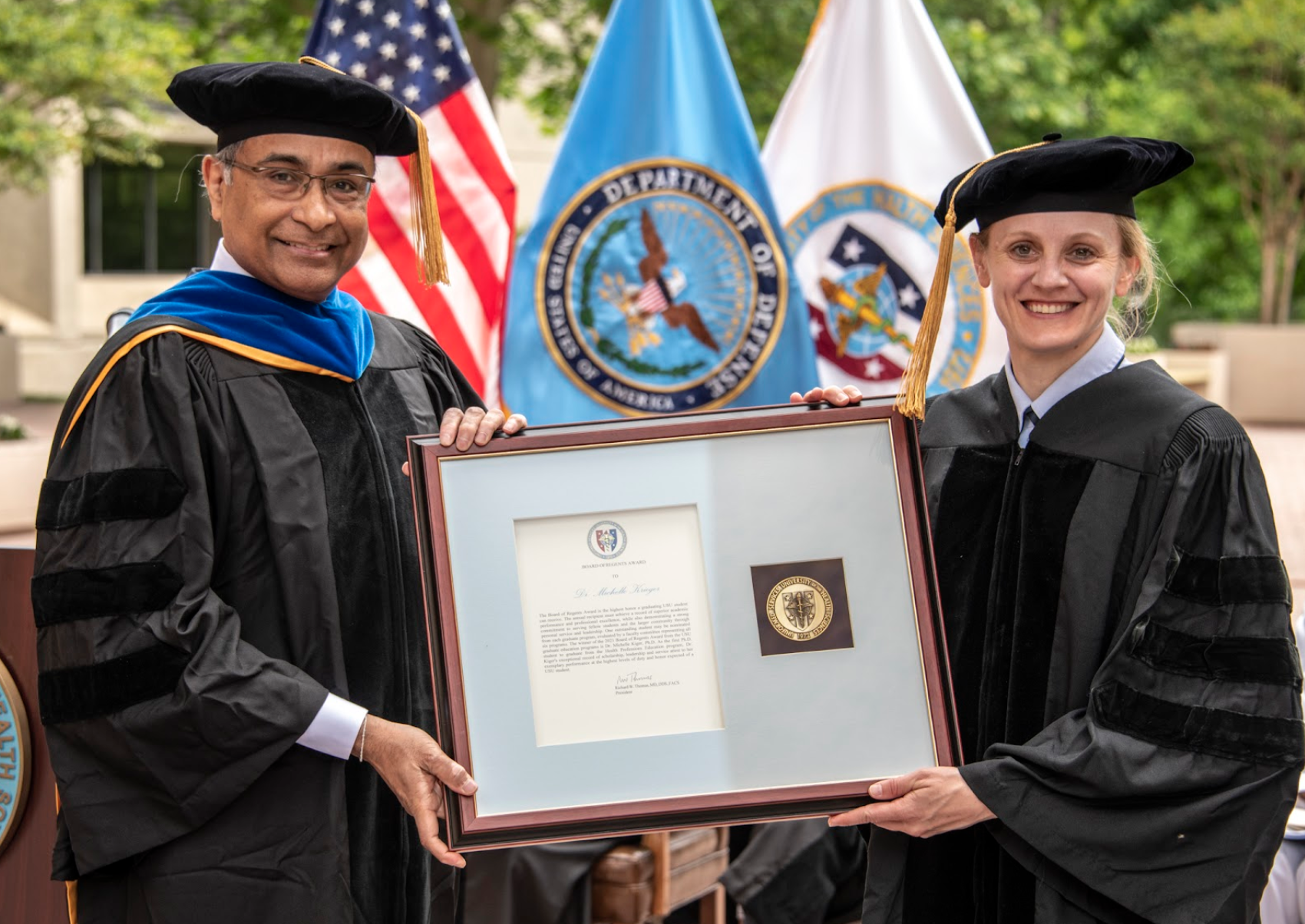phd in HPE
A master’s degree (e.g., MHPE, MPH, MEd, or MS degree) is a prerequisite for the PhD in HPE. Learners entering the program without an MHPE or USU’s MEd-HPE should expect to complete all masters level coursework before beginning the PhD level coursework. The PhD degree is meant to serve those select learners with the desire to be at the forefront in the scholarship, leadership, and teaching of health professions learners. The PhD degree is a research-intensive degree meant for those individuals planning to serve as independent researchers, research directors, and/or principal or associate investigators on grant- funded HPE research after graduation. It also provides additional education and training in all HPE competencies. The Dissertation requires more focused and thematic (series of related studies) investigation with demonstration of expertise in research methods in HPE. The leadership and teaching curricula are also more challenging, requiring a higher level of mastery than the MHPE.
The PhD in HPE program of study is structured by the following components:
- Basic academic foundation consisting of the MHPE curriculum
- Additional advanced courses in HPE
- Additional seminar courses
- Doctoral practicum
- Oral proposal defense (open and closed)
- Electronic portfolio
- Written dissertation
The PhD in HPE is targeted toward deans (associate, senior, vice level), clinical chairs, clinical vice chairs of research and education, directors of research and teaching programs, and other senior leaders in HPE to further enhance their knowledge beyond the core areas of the MHPE program. Like the MHPE program, there is an emphasis on the practical application of core principles. Graduates are expected to serve as leaders, scholars, and educators in the DoD’s health professions programs.
PhD in HPE Expected Completion Timeline
It is expected that PhD in HPE learners complete the entire program in four years with full-time enrollment (e.g. two years after completing a MHPE). Learners should consult the progression charts to ensure appropriate advancement of program requirements. Additional time allowed by USU should only be permitted in unusual circumstances beyond the control of the learner, such as prolonged illness of the learner or Research Advisor or interruptions caused by military duty obligations. Any proposed extension will be reviewed by the Director of CHPE.
- The PhD in HPE is sequenced to be completed in four years on a full-time basis (five to six years on a part- time basis). It requires 24 months of full-time study (36 months of part-time study) beyond the MHPE degree. For individuals pursuing a PhD in HPE without a MHPE or USU’s MEd-HPE whereby learners take a large number of our MHPE courses, required MHPE courses will need to be completed. Learners are required to regularly check in (in-person, via phone, email, or video teleconference) with their academic advisor to discuss courses for each term. Note that required PhD course offerings can be taken as electives at the MHPE level.
- Learners who wish to obtain a PhD in HPE without also obtaining a MHPE degree must complete required MHPE courses. Learners will also be expected to complete 100 hours of practicum time (10 credit hours of practicum) if seeking a PhD degree without first obtaining a Master’s degree.
Transfers
- Learners transferring into the PhD in HPE program from other institutions may apply for up to 18 academic credits of comparable graduate level courses to meet the MHPE and PhD in HPE requirements. The individuals responsible for this approval include the Director of CHPE and the Associate Dean for Graduate Education. The grades from transferred courses will not contribute to the overall grade point average for coursework completed at USU.
*All program requirements are subject to change. Please contact CHPE@usuhs.edu for the latest information.
